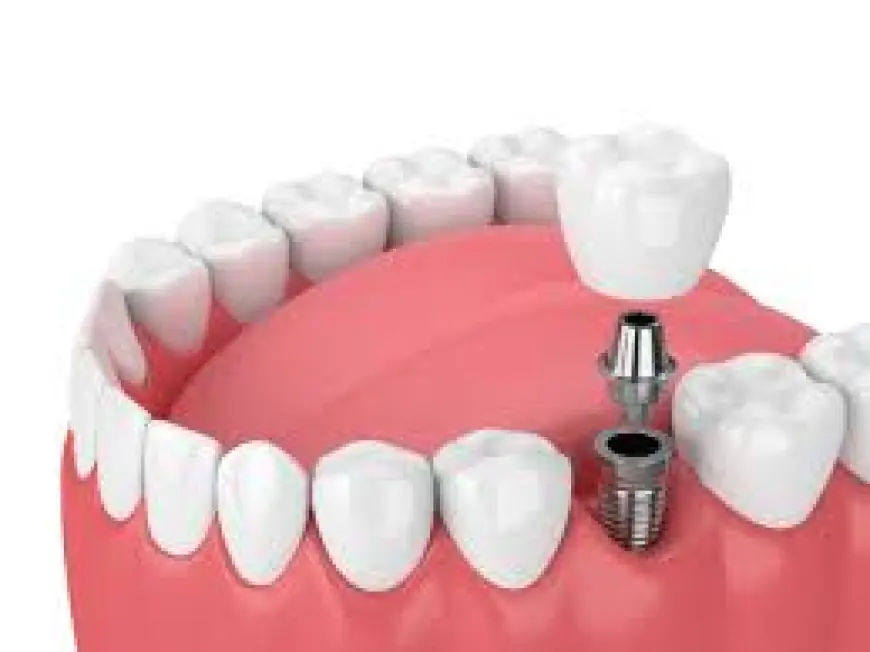Top Questions to Ask Your Dentist Before Getting Dental Implants
Discover essential questions to ask your dentist before getting dental implants. Ensure you are well-informed and confident in your dental decisions.

Dental implants are a life-changing solution for individuals dealing with missing or damaged teeth. Among the various implant options available, All-on-4 dental implants have become increasingly popular due to their ability to restore a full set of teeth with fewer implants, especially for those who may have experienced significant bone loss. However, before making a decision, it's important to ask the right questions to your dentist to ensure you're fully informed about the procedure, costs, benefits, and potential risks.
In this article, we’ve compiled the top questions you should ask your dentist before opting for All-on-4 dental implants to help guide your decision-making process.
1. Am I a Good Candidate for All-on-4 Dental Implants?
The first question to ask is whether you’re a suitable candidate for All-on-4 dental implants. This is essential, as not every patient is a perfect fit for this procedure.
-
Bone Health: While traditional implants often require a certain amount of healthy jawbone, All-on-4 dental implants are designed to work with patients who may have experienced some bone loss. The procedure strategically places four implants at specific angles, maximizing the available bone.
-
Overall Health: Your dentist will also assess your general health. Patients with chronic conditions, such as diabetes or heart disease, may need to be evaluated carefully to determine if they are healthy enough for surgery.
Ask your dentist about the steps involved in the evaluation process and whether they recommend any pre-surgery treatments, such as bone grafts or other preparations.
2. What Is the All-on-4 Implant Procedure Like?
Understanding the procedure itself is crucial for managing expectations. Ask your dentist to explain each step of the All-on-4 dental implants process:
-
Surgical Steps: In most cases, the procedure begins with placing the four titanium implants into the jawbone. This is followed by a recovery period, allowing the implants to fuse with the bone (osseointegration).
-
Temporary Teeth: After the initial surgery, temporary teeth are often placed while the implants heal, allowing you to have a functional set of teeth during the healing process.
-
Final Restoration: Once the implants are fully integrated, permanent teeth or a bridge is placed.
Ask how long the entire process typically takes, including healing time and when you can expect your permanent teeth to be placed.
3. What Are the Costs of All-on-4 Dental Implants?
All-on-4 dental implants can be a significant investment, so it’s important to have a clear understanding of the costs involved. Dental implant prices can vary depending on factors such as location, the experience of the dental surgeon, and the materials used.
-
Insurance Coverage: Ask whether your dental insurance will cover any part of the cost of All-on-4 dental implants. Many insurance plans may cover a portion, but the extent of coverage can vary.
-
Financing Options: If the cost is a concern, ask about financing options. Many dental practices offer payment plans or work with third-party financing companies to help make the procedure more affordable.
Be sure to clarify if any hidden fees are associated with the procedure, such as consultation costs, anesthesia, or follow-up appointments.
4. What Are the Risks and Potential Complications?
As with any surgical procedure, there are risks associated with dental implants. It’s important to ask your dentist about potential complications that could arise during or after the All-on-4 procedure:
-
Infection: Although rare, infections can occur after surgery. Be sure to ask about the signs of infection and how to manage it if it happens.
-
Implant Failure: In some cases, the implant may fail to integrate with the bone, requiring removal and replacement. While this is uncommon with All-on-4 dental implants, it’s important to understand the likelihood and what the next steps would be if something goes wrong.
-
Nerve Damage: Ask about the risk of nerve damage or other complications that could affect the feeling in your gums, lips, or chin.
Knowing the potential risks will help you make a more informed decision and ensure that you're fully prepared for the process.
5. How Long Will My All-on-4 Dental Implants Last?
One of the major benefits of All-on-4 dental implants is their longevity. Unlike dentures or bridges, which may need to be replaced every 5-10 years, dental implants are designed to last for many years, even a lifetime with proper care.
However, the lifespan of your implants can depend on factors such as:
-
Oral Hygiene: Proper care of your implants is essential for their longevity. Make sure to ask about any specific cleaning routines or products that will help maintain your implants.
-
Habits: Smoking, grinding your teeth, or poor dietary habits can affect the lifespan of your implants. It’s important to ask for recommendations on maintaining good oral health.
Understanding how to care for your implants will ensure they last as long as possible and continue to function properly.
6. What Is the Recovery Process Like?
Recovery times can vary from person to person, but All-on-4 dental implants generally have a quicker recovery time compared to traditional implants. However, it’s still important to understand what to expect during the healing process.
-
Pain and Swelling: Ask about the level of discomfort you can expect after the procedure. Most patients experience mild swelling and bruising, but these symptoms typically subside within a few days.
-
Dietary Restrictions: Your dentist will likely recommend a soft-food diet during the initial recovery phase to avoid putting pressure on the implants.
-
Follow-Up Care: You’ll need to schedule follow-up appointments to ensure that your implants are healing properly. Ask about how often you will need to visit the dentist and what they will be monitoring during these visits.
Being prepared for the recovery process can help reduce anxiety and help you follow the necessary steps for a successful outcome.
7. How Will All-on-4 Implants Affect My Daily Life?
Finally, ask your dentist how All-on-4 dental implants will impact your daily activities. One of the advantages of these implants is that they function and feel like natural teeth, so you can resume most of your normal activities, such as:
-
Eating and Speaking: You’ll be able to eat and speak normally without the discomfort or limitations that can come with traditional dentures.
-
Confidence: Having a permanent set of teeth can improve your self-esteem and confidence, making you feel more comfortable in social and professional settings.
Ensure that your dentist discusses how quickly you’ll be able to resume normal activities after the procedure, so you can plan accordingly.
Conclusion
Choosing All-on-4 dental implants is a major decision, and asking the right questions is vital to ensuring the procedure is right for you. From understanding the costs and recovery process to addressing potential risks and benefits, having all the information will help you feel confident in your choice. By consulting with your dentist and discussing these top questions, you’ll be well on your way to enjoying a restored smile and improved quality of life with All-on-4 dental implants.
Read More ( Click Here )
What's Your Reaction?
 Like
0
Like
0
 Dislike
0
Dislike
0
 Love
0
Love
0
 Funny
0
Funny
0
 Angry
0
Angry
0
 Sad
0
Sad
0
 Wow
0
Wow
0
















































